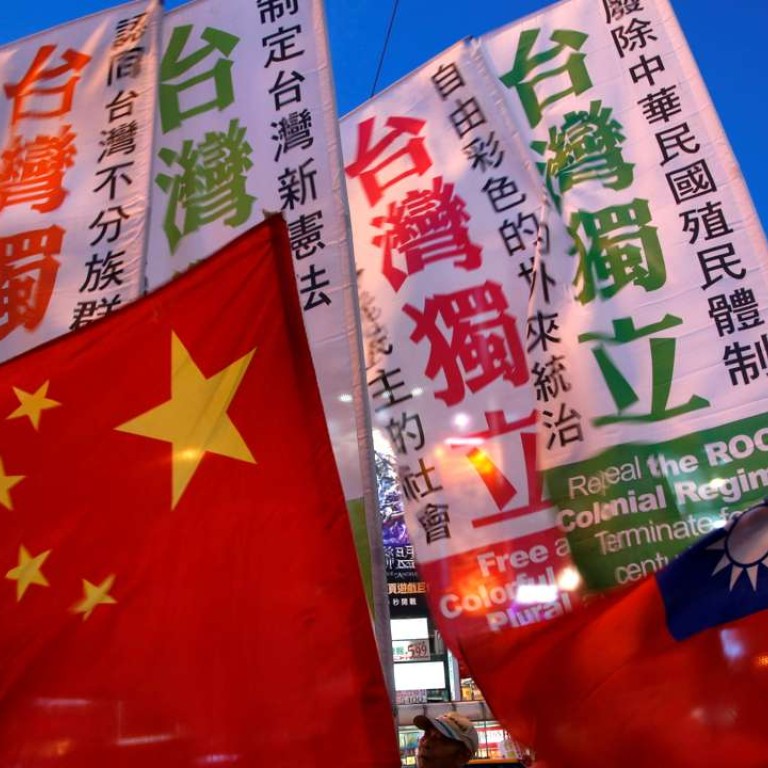
Taiwanese independence must be fought on all fronts, says former Chinese official
Beijing expects cross-strait ties to become more complex after Donald Trump takes office, according to former president of the Association for Relations Across the Taiwan Strait
Beijing must be prepared to suppress pro-independence forces in Taiwan on all fronts ranging from political to diplomatic, according to the former president of the Association for Relations Across the Taiwan Strait.
Wang Zaixi, who once led the mainland’s semi-governmental organisation for managing ties with Taiwan, said Beijing expected cross-strait relations to get more complicated once Donald Trump became the US president on January 20.
Wang said only the mainland had the capacity and resolve to contain Taiwanese pro-independence forces, but that Beijing would also consider public sentiment of the self-ruled island.
“With the help of the US, Taiwan’s pro-independence forces will play more de-sinicisation tricks without fear,” Wang was quoted as saying by the Global Times, a newspaper published by People’s Daily.
“The only force that can contain Taiwan independence is the Chinese mainland ... To solve the Taiwan issue, it is necessary to comprehensively make use of politics, the economy, the military, the media, diplomacy and so on, ” Wang said.
In a commentary published in the same newspaper, Douglas Paal, former director of the American Institute in Taiwan, also predicted that Sino-US relations would see complications.
Paal said Washington was increasingly sceptical about Beijing on matters like regional disputes, trade and investment frictions and the Taiwan issue.
Other analysts agreed that given the forseeable complexities in the trilateral relationship between Beijing, Washington and Taipei, Beijing was worried about the independence-leaning trend on the island and wanted to pressure the government of its president, Tsai Ing-wen.
Chang Yachung, an observer from National Taiwan University, said the Tsai administration refused to recognise the 1992 consensus, leaving Beijing and Taipei with no political basis for talks.
The 1992 consensus refers to an understanding between Beijing and Taipei that there is only one China, but that both sides are free to interpret what “China” means.
“And Tsai is continuing her de-sinicisation action, which worsens the identity crisis among Taiwanese youngsters, a situation Beijing is not willing to see,” Chang added.
He said that Beijing was likely to pressure Taiwan mainly through diplomatic and military means.
Beijing re-established diplomatic ties with former Taiwanese ally Sao Tome and Principe last month, signalling the recurrence of a diplomatic war between Beijing and Taipei.

